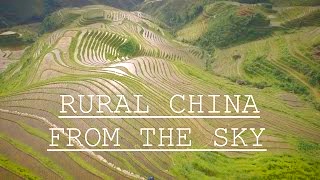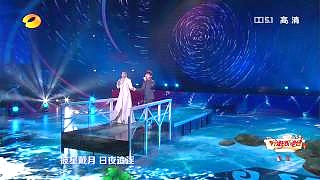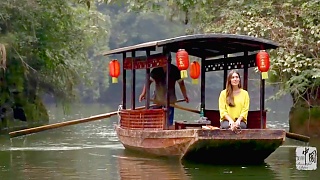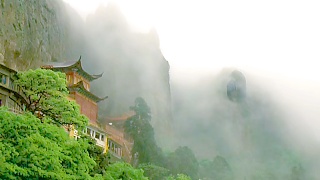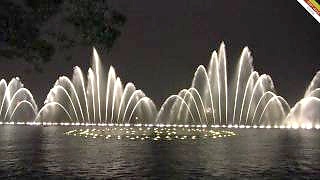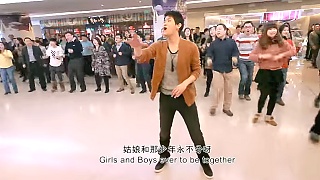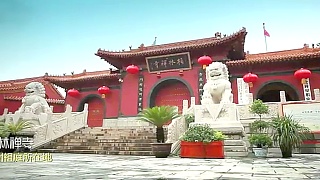Also known as the Spring Festival, the Chinese New Year on the mainland lasts one week.
Preparations will already be under way and include a spring clean and adding festive decorations. New Year's Eve and New Year's Day are a time for family reunions, and for many this means travelling home from the city to the countryside.
Chinese New Year is celebrated in many countries and China-towns around the World.
GōngXǐ FāCái 恭喜发财 !
The first film, 'Coming Together', is from Malaysia - enjoy ...
[640],shadow=true,start=,stop=The Spring Festival is about a new year, a new beginning. A time of renewal, and hope and a fresh start, a time of good-will.
For example, fireworks, apart from being a joy to all, are to scare away bad spirits. One can see this symbolize the breaking of old habits of thought – a spring clean of the mind.
A new year is a new chance for a better life – if you will take it. Keep your eyes open, heart abundant, and strive for a better world. Help others on their journey whenever you can and always share a smile. It may help another, but it will certainly be good for you.
As the second film says, it is love that brings us closer to happiness.
Above all, the Spring Festival is a time for family.
Next 4 films :
1: 'Going Home' ...
2: A touching song about life and friendship (forget the sub-titles, just watch the video). 'Beautiful Snow County is my Home' ...
3: 'Family Portrait' (from Malaysia) - a wry look at family life in the digital age ...
4: 'Don't be tied to the past, but don't tear it up' ...
Two 2017 CNY songs from the M Girls (Malaysia). They have released a CNY album every year since 2001 ...
2011 flash-back - CNY fireworks in BeiJing ...
[320],shadow=true,start=30,stop=Lion Dance in Malaysia (2017) ...
[320],shadow=true,start=,stop=Timing and Duration:
Lunar Calendar: Chinese New Year follows the lunar calendar, with the date falling between late January and mid-February each year. The exact date varies because it is based on the lunar phases.
Festival Period: The celebrations typically last for 15 days, beginning on the eve of Chinese New Year and ending with the Lantern Festival on the 15th day of the lunar calendar.
Traditions and Customs:
Family Reunions: Chinese New Year is a time for families to come together and celebrate. Many people travel long distances to reunite with their relatives, leading to the largest annual human migration in the world, known as Chunyun.
Cleaning and Decoration: In the days leading up to Chinese New Year, families clean their homes to sweep away bad luck and make way for good fortune. They also decorate their homes with red lanterns, couplets (duilian), and paper cutouts featuring auspicious symbols.
Chinese New Year's Eve Dinner: The New Year's Eve dinner, known as 'reunion dinner' (??? tu�nni�nf�n), is a lavish feast shared with family members. Traditional dishes include fish (symbolizing prosperity), dumplings (symbolizing wealth), and various other symbolic foods.
Red Envelopes (Hongbao): Red envelopes containing money are given as gifts during Chinese New Year, especially to children and unmarried individuals. The red color symbolizes good luck and wards off evil spirits.
Fireworks and Firecrackers: Fireworks and firecrackers are set off at midnight on New Year's Eve and throughout the festival period to scare away evil spirits and bring good luck.
Lion and Dragon Dances: Colorful lion and dragon dances are performed in streets, parks, and public squares to bring prosperity and good fortune to communities.
Zodiac Animals:
Each Year is Associated with an Animal: Chinese New Year is symbolized by one of the 12 animals in the Chinese zodiac cycle. Each animal is believed to influence the personality traits and destiny of individuals born in that year.
Travel and Celebrations:
Spring Festival Gala: The Spring Festival Gala, broadcasted on Chinese television on New Year's Eve, features a variety of performances, skits, and musical acts. It is one of the most-watched television programs in the world.
Temple Fairs: Traditional temple fairs are held throughout China during Chinese New Year, offering food stalls, performances, games, and cultural activities for visitors to enjoy.
Chinese New Year is a time of joy, reunion, and renewal, filled with rich traditions and customs that have been passed down through generations. It is a celebration of family, community, and the arrival of spring, marking a fresh beginning and the promise of prosperity in the year ahead.
 Coming together – the Chinese New Year 中国新年
Coming together – the Chinese New Year 中国新年